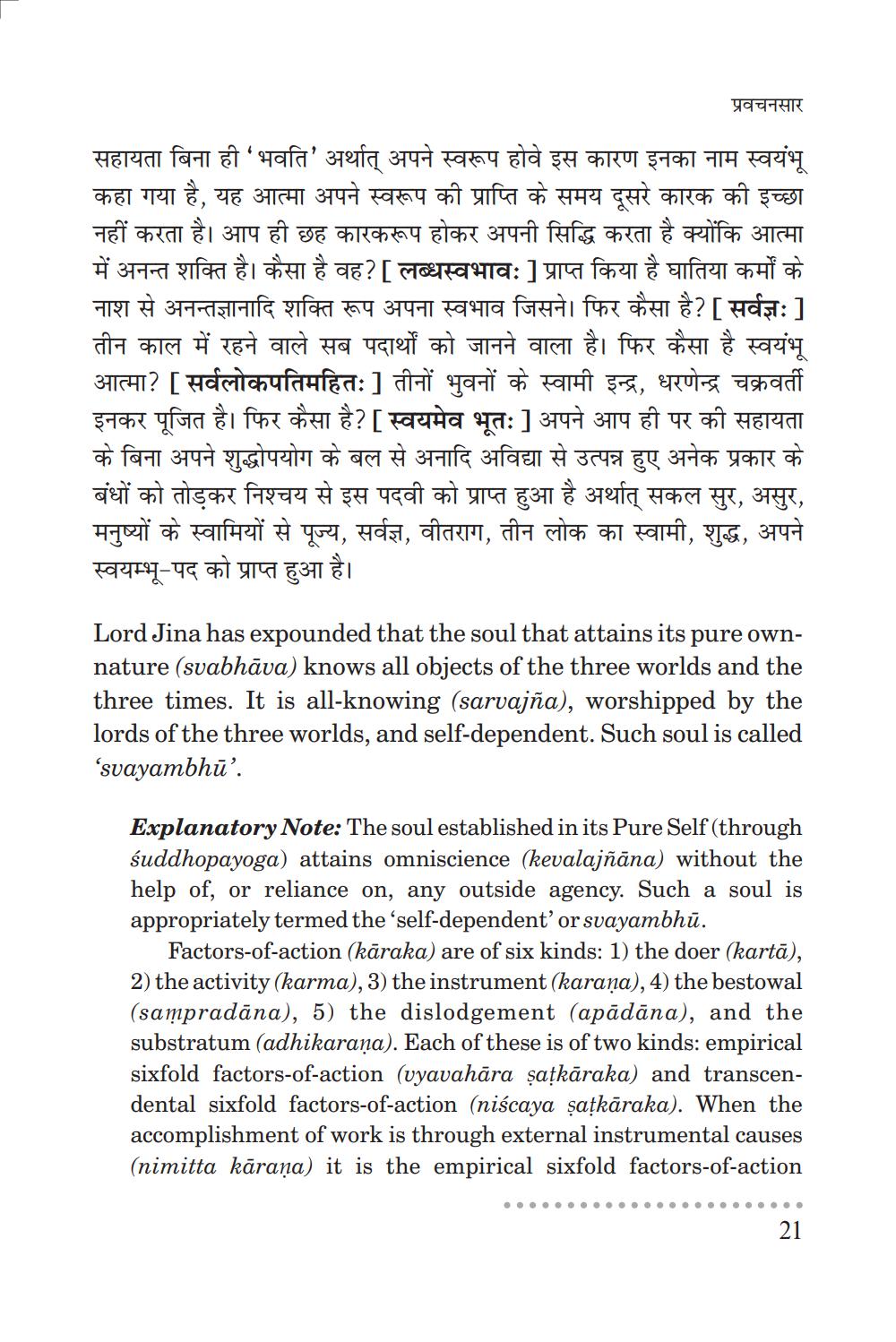________________
प्रवचनसार
सहायता बिना ही ‘भवति' अर्थात् अपने स्वरूप होवे इस कारण इनका नाम स्वयंभू कहा गया है, यह आत्मा अपने स्वरूप की प्राप्ति के समय दूसरे कारक की इच्छा नहीं करता है। आप ही छह कारकरूप होकर अपनी सिद्धि करता है क्योंकि आत्मा में अनन्त शक्ति है। कैसा है वह ? [ लब्धस्वभावः ] प्राप्त किया है घातिया कर्मों के नाश से अनन्तज्ञानादि शक्ति रूप अपना स्वभाव जिसने । फिर कैसा है ? [ सर्वज्ञ: ] तीन काल में रहने वाले सब पदार्थों को जानने वाला है। फिर कैसा है स्वयंभू आत्मा? [ सर्वलोकपतिमहितः ] तीनों भुवनों के स्वामी इन्द्र, धरणेन्द्र चक्रवर्ती इनकर पूजित है । फिर कैसा है ? [ स्वयमेव भूतः ] अपने आप ही पर की सहायता के बिना अपने शुद्धोपयोग के बल से अनादि अविद्या से उत्पन्न हुए अनेक प्रकार के बंधों को तोड़कर निश्चय से इस पदवी को प्राप्त हुआ है अर्थात् सकल सुर, असुर, मनुष्यों के स्वामियों से पूज्य, सर्वज्ञ, वीतराग, तीन लोक का स्वामी, शुद्ध, अपने स्वयम्भू-पद को प्राप्त हुआ है।
Lord Jina has expounded that the soul that attains its pure ownnature (svabhava) knows all objects of the three worlds and the three times. It is all-knowing (sarvajña), worshipped by the lords of the three worlds, and self-dependent. Such soul is called 'svayambhū'.
Explanatory Note: The soul established in its Pure Self (through śuddhopayoga) attains omniscience (kevalajñāna) without the help of, or reliance on, any outside agency. Such a soul is appropriately termed the 'self-dependent' or svayambhū.
Factors-of-action ( kāraka ) are of six kinds : 1) the doer (kartā), 2) the activity (karma), 3) the instrument (karana), 4) the bestowal (sampradāna), 5) the dislodgement (apādāna), and the substratum (adhikarana). Each of these is of two kinds: empirical sixfold factors-of-action (vyavahāra sathāraka) and transcendental sixfold factors-of-action ( niścaya satkāraka). When the accomplishment of work is through external instrumental causes (nimitta kāraṇa) it is the empirical sixfold factors-of-action
.........
21




